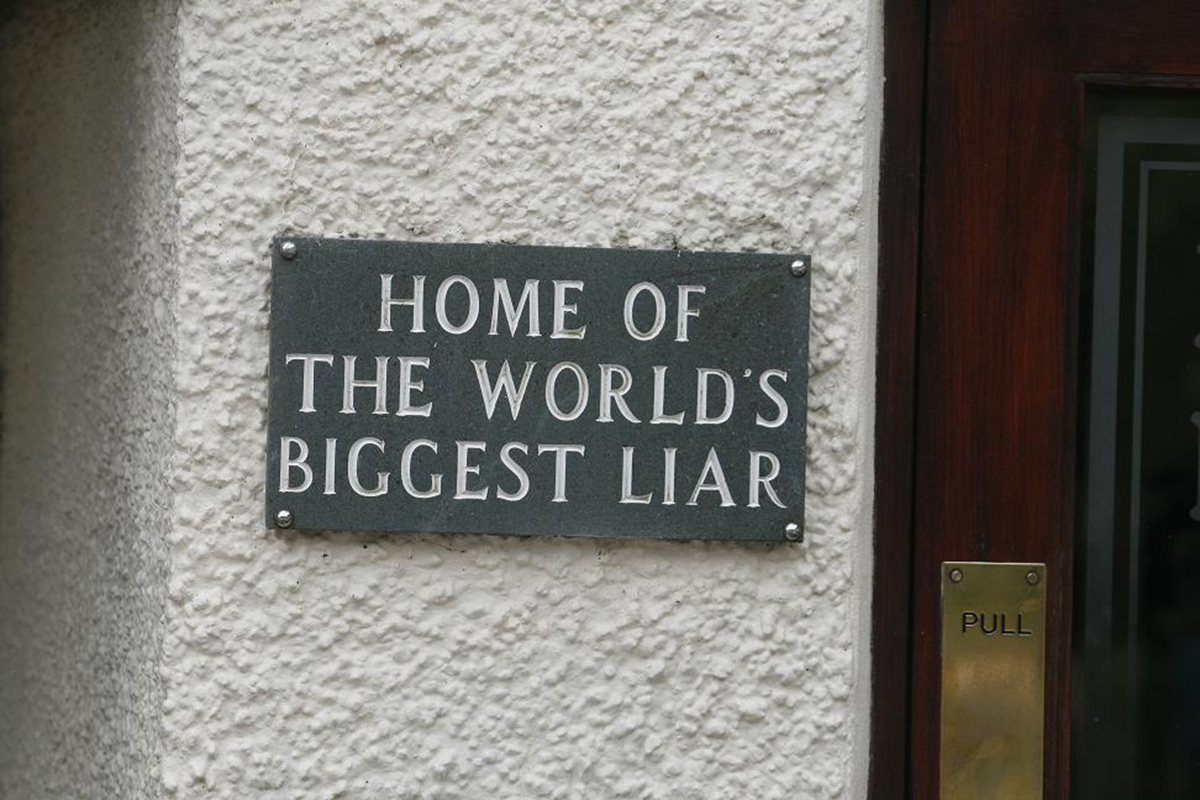Table of Contents
One already stress- and fatigue-filled day last year, the light bulb in my bathroom died and I didn't have time to run out and get a replacement. There being no windows in my bathroom, it was nearly completely dark when I completely unsuspectingly went there to do my business — only to be obstructed by a devious layer of Saran Wrap. It was a prank my kids had watched on YouTube, and one (or both?) of them apparently took the lacking bathroom light as a divine sign that now was the time to try it out.
I was not amused. I wanted to know who the culprit was.
Both kids denied pulling the disgusting prank, but there were only two possibilities here; either one of them did it, or they were in it together. No matter the actual scenario, one thing was clear — at least one of my kids was lying to me. They weren't 'fessing up, though. The result? I blamed my son, the normally more mischief-loving child, and gave him a short lecture about how having the stuff that your body excretes pasted to your behind isn't pleasant. His giggles only added fuel to my belief that I was talking to the right child.

Some months later, though, my daughter, for some reason, admitted she had been the one who set the prank up, and I had wrongfully blamed her brother. I don't know whether she confessed because she felt bad, or because she wanted some credit for her prank, but apparently I was wrong.
Think You Have An Inbuilt Parental Lie Detector? You're Wrong
Do you think this couldn't have happened to you?
READ Are You Caught In A Web Of Lies? How To Spot A Pathological Liar
In an experiment led by Brock University psychologist Angela Evans, a group of kids between the ages of eight to 16 were asked to participate in a test, but given the chance to take a peek at the answers. They were later asked whether or not they had taken a look — something the researchers' footage confirmed or denied — but the kids weren't the real ones being tested. A total of 72 parents and 79 undergraduate student non-parents were asked to judge whether children were lying or telling the truth in recorded videos featuring equal numbers of liars and truth tellers.
Since each kid was either lying or telling the truth, participants had a had a 50 percent chance of getting their answer right purely accidentally. In order to demonstrate that parents and non-parents were skilled at detecting lies in children, they'd have to be right much more often than half the time — and they weren't.
What's the deal? Are kids much better liars than we tend to give them credit for, or do we suck at weeding out lies in general?
- Photo courtesy of alancleaver: www.flickr.com/photos/alancleaver/5922684641/
- Photo courtesy of new1illumintai: www.flickr.com/photos/67194724@N03/12968618575/
- Photo courtesy of new1illumintai: www.flickr.com/photos/67194724@N03/12968618575/
- psmag.com/parents-cant-tell-when-their-kids-are-lying-81c5b62a6735#.rjzbt8lqs
- www.theguardian.com/commentisfree/2014/dec/15/children-lie-age-two-tell-truth
- www.reference.com/world-view/many-times-day-average-person-lie-47b13ac29354113c
- www.psychologytoday.com/blog/spycatcher/201203/the-truth-about-lie-detection


Your thoughts on this